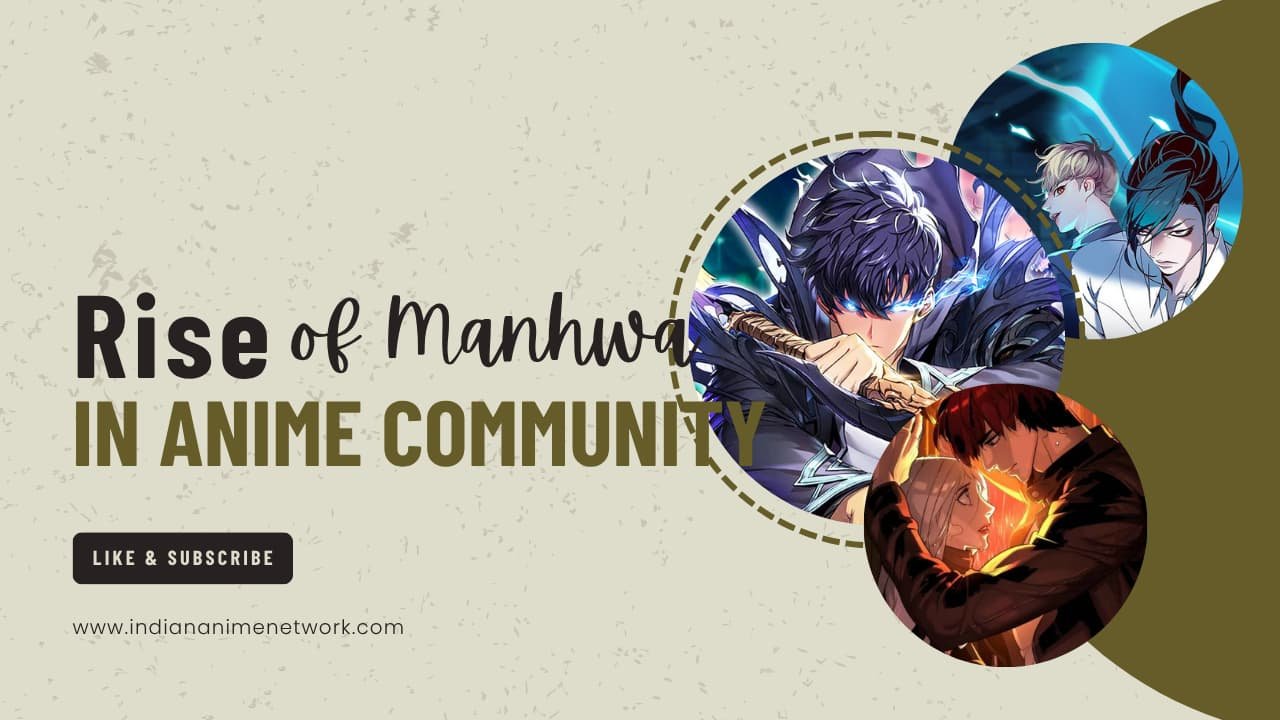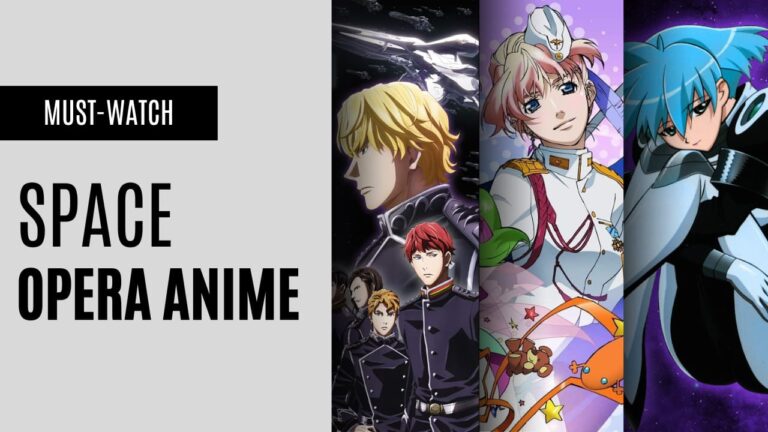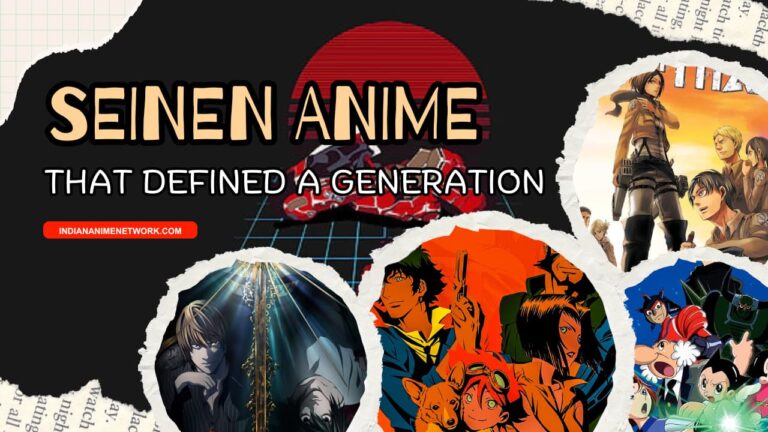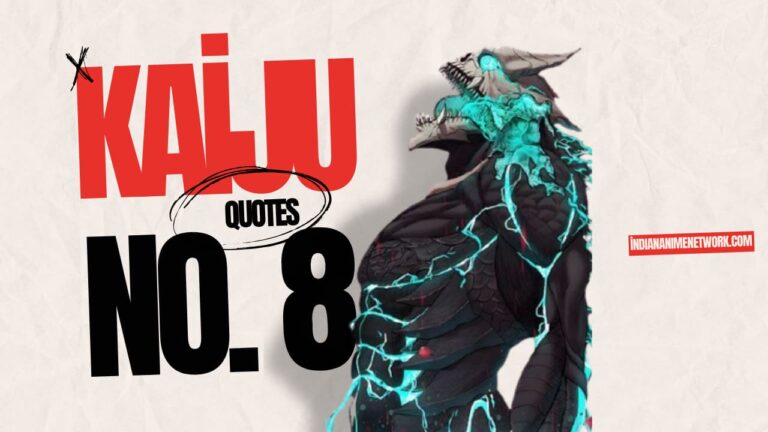Rise of Manhwa in Anime (2025 Update): How Webtoons Are Dominating the Screen
By 2026, Korean comics (“manhwa”) will have fully broken into the anime world. What was once a niche trend is now mainstream – “Korean webtoons are now hit anime shows,” as industry reporters note.
Series like Solo Leveling have become global phenomena, Tower of God and Noblesse amassed millions of fans, and even top anime studios (MAPPA, Telecom Animation, Production I.G.) are adapting webtoon IP in partnership with Crunchyroll.
Back in 2021, our article ‘Rise of Manhwa in the Anime Community – The Beginning of a New Anime Era‘ explored the early stirrings of Korean webtoons in animation.
Now, in this post-COVID landscape, manhwa and webtoon adaptations have become a cornerstone of global anime lineups, driven by digital platforms and expanding international demand.
Manhwa, Manga, and Webtoons: What’s the Difference?
Manhwa is simply the Korean word for comics. Historically printed in Korea, manhwa has exploded globally through webtoons – digital comics optimized for smartphones.
Unlike Japanese manga, which is traditionally black-and-white and page-oriented, webtoons are full-color, vertically scrolling comics designed for online reading.
Modern Korean creators exploit this format: rich color palettes and cinematic layouts make webtoons visually striking. In fact, webtoons “have branched outside of Korea” via digital platforms, spawning hit movies, dramas, and anime adaptations.
This format revolutionizes storytelling: readers scroll continuously through vivid scenes, rather than flipping static pages, which has helped Korean comics capture a worldwide audience.
The Digital Boom: Platforms & Global Expansion
The rise of manhwa/anime is powered by global webtoon platforms. South Korean giants Naver Webtoon (LINE Webtoon) and Kakao Webtoon (including Kakao Page/Tapas) now reach tens of millions of readers worldwide.
For example, LINE’s Japanese service Line Manga (formerly Comic Plus) recently became the top-grossing app in Japan, even surpassing games, and now controls over half of Japan’s digital comic market.
In a February 2025 press briefing, LINE’s CEO Kim Shin-bae revealed an aggressive strategy: having overseen only 12 anime adaptations in 2024, the company plans 20 webtoon-based anime series in 2025.
Similarly, Kakao is pushing its comics globally. Its Tapas subsidiary adapted the English-language novel The Beginning After the End (TBATE) into a webtoon, generating about $500,000 in monthly revenue.
Kakao even announced the TBATE anime at New York Comic Con 2024, slated to stream on Crunchyroll in 2025.
These moves show how Korean platforms are building a full media ecosystem – from digital comics to animation, TV drama, and merch – targeting the global anime market.
WEBTOON Entertainment (Naver’s parent) has also expanded overseas. Its CEO, Junkoo Kim, has called Japan “a natural growth market” for their content.
In early 2025, the company invested in a Japanese webcomic studio (No.9 Inc.) and noted that its LINE Manga app “topped the overall app market by revenue” multiple times in 2024.
WEBTOON is now co-producing Omniscient Reader’s Viewpoint (with Aniplex and Crunchyroll) and even a GOSU anime with Toei (famous for One Piece and Dragon Ball).
These collaborations illustrate that Korean comics are being exported and animated on par with Japanese manga. In short, better digital tools and global strategies have turned manhwa/webtoons into international hit factories.
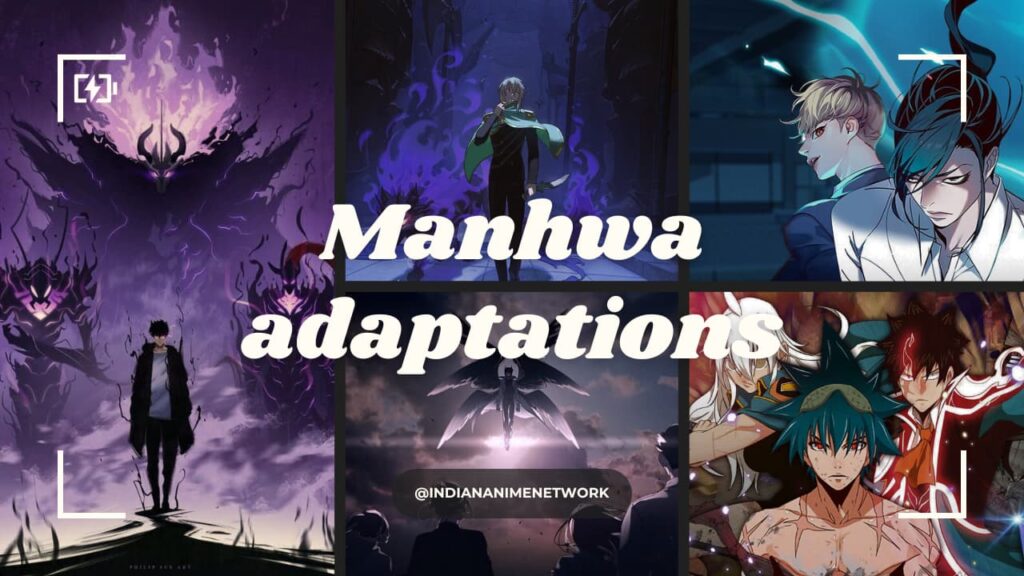
Major Manhwa Anime Adaptations
Solo Leveling (나 혼자만 레벨업)
The quintessential hit. Produced by A-1 Pictures, Solo Leveling premiered on Crunchyroll in January 2024 (Season 1), with Season 2 in early 2025.
It quickly smashed records: Crunchyroll reports over 15 million subscribers watched it, and by March 2025, the series had 614,300 user reviews – more than One Piece earned in 12 years.
Solo Leveling was even named Crunchyroll’s Anime of the Year 2025. It’s an underdog story (weakest hunter becomes unstoppable), and the high-quality action soundtrack resonated globally, proving Korean webtoon IP can fuel blockbuster anime.
Beyond its stunning animation and global impact, Solo Leveling has also left fans quoting iconic lines-check out our collection of the best Solo Leveling quotes that captured the essence of Jinwoo’s journey.
Tower of God (신의 탑)
One of the pioneers. This SIU manhwa was adapted in 2020 by Telecom Animation (Crunchyroll co-production). Its success demonstrated the international appetite for webtoon anime, carrying its story across Asia, Europe, and America.
The God of High School (갓 오브 하이스쿨)
Another early trailblazer. A 2020 MAPPA production (Crunchyroll stream), it showed Korean martial-arts fantasy could become a hit anime.
Noblesse (노블레스)
A beloved vampire webtoon animated by Production I.G. and streamed on Crunchyroll in Fall 2020. Its release marked one of the first major Crunchyroll+Webtoon collaborations and helped build hype for future adaptations.
If you enjoyed Noblesse’s unique blend of supernatural action and stylish storytelling, you’ll find it featured in our list of anime like One Punch Man-perfect for fans of powerful protagonists and high-stakes battles
Lookism (외모지상주의)
This dark-school drama by Park Tae-jun got a Netflix anime adaptation in Nov 2022. Studio Mir (of Legend of Korra) produced the series.
The official Netflix key visual (above) underscores Lookism’s gritty style. Fans were excited to see a homegrown webtoon address themes of bullying and self-worth, and the adaptation featured an opening song by K-pop group ATEEZ.
Semantic Error (시맨틱 에러)
A hit BL (boys’ love) manhwa that “took the internet by storm” when adapted into a 2022 live-action series. Its success on platforms like YouTube highlights how webtoon fans eagerly create and share fan art, memes, and cosplay for these titles.
Fans of Semantic Error will also love our curated guide to the Best BL/Yaoi Anime-tailored for every mood and perfect for discovering your next favorite series
True Beauty (여신강림) and Why Raeliana Ended Up at the Duke’s Mansion (그 남작부인의 50가지 그림자)
Romance/fantasy webtoons adapted into popular Korean dramas (2020–21). While not anime, their success shows how webtoon IP is lucrative across media.
7Fates: Chakho and The Star Seekers
Webtoons created by K-pop powerhouse HYBE (inspired by BTS and TXT). In April 2025, anime studio CloverWorks released 11-minute animated shorts for each.
The BTS-themed 7Fates short (voice cast included popular seiyuu) and the TXT-themed Star Seekers short demonstrate how major global brands are using webtoon stories to engage fans.
The Beginning After the End (TBATE)
A fantasy saga that started as an English web novel on Tapas. Kakao’s announcement at NYCC 2024 confirmed a 2025 Crunchyroll anime adaptation.
TBATE’s mix of Western and Eastern fantasy appeals widely, and its success on Tapas (translated into 7 languages) shows how overseas-born IP is now merging with Korean comics.
Omniscient Reader’s Viewpoint
Originally a Korean web novel/manhwa with a huge online readership. Crunchyroll and Aniplex are co-producing its anime (announced at Anime Expo 2024) – one of the biggest upcoming webtoon anime projects.
Eleceed
A popular action webtoon (by the creators of Noblesse) that quietly teased an anime adaptation by launching an official “coming soon” website in 2024. Fans speculate a major studio is attached.
Gosu (고수)
A martial-arts manhwa sequel series. Webtoon Entertainment’s announcement confirms Gosu is getting an anime (in partnership with Toei). This hints at future manhwa anime by powerhouse studios.
Tomb Raider King (갓 오브 하이스쿨)
Originally a web novel turned manhwa, it was officially announced for a 2026 anime at Anime Expo 2024.
And many others – from fantasy thrillers (Dark Moon, Red Ice, Rebirth of the Heavenly Demon) to romances (Red Fox, I Married a Monster on a Hill), numerous webtoons have confirmed or rumored anime adaptations.
Global platforms like Netflix, Crunchyroll, and Disney+ are actively looking to this vast library of content. In short, nearly every genre of popular webtoon – action, romance, comedy, horror, BL – now has anime champions.
Fans and Fandom Response
The global anime community has embraced this manhwa wave. On Reddit and Discord, fan communities for titles like Solo Leveling, Tower of God, and True Beauty have ballooned into the hundreds of thousands, sharing fan art, theories, and cosplay photos.
Hashtags like #SoloLeveling and #ManhwaAnime frequently trend on Twitter and TikTok as new episodes drop. For example, in Crunchyroll’s annual Anime Awards polls (April 2025), Solo Leveling dominated fan voting categories.
At conventions (Anime NYC, Anime Expo, Japan Expo), audiences packed panels for webtoon anime announcements, and cosplayers have been spotted dressing as characters from Noblesse, Tower of God, God of High School, and more.
Enthusiasts even create fan-led polls and quizzes on sites like MyAnimeList, often nominating manhwa adaptations in “Best Anime of the Year” lists.
This groundswell of online fandom – art streams, reaction videos, fan-run subtitles – underscores that webtoon-derived anime now have vibrant, active fanbases worldwide.

Expert Perspectives
Industry leaders are bullish on this trend. Junkoo Kim, CEO of WEBTOON Entertainment (Naver’s comics arm), remarked in early 2025:
“Japan is the home of manga and some of the world’s most exciting comic art, so it’s a natural growth market for our global business… Working with Japanese partners, we’ve developed global hits like ‘Savior of Divine Blood,’ and we’re excited to expand our partnership”.
This highlights that Korean publishers see partnerships (and co-productions) as key to converting popular manhwa into anime.
On the production side, animation staff note that modern webtoons’ full-color art and cinematic panel layouts translate well into animated form, often saving designers time in reimagining scenes.
Translation teams at Crunchyroll also find that webtoon adaptations are in high demand: their localizers report record viewership numbers for Solo Leveling, TBATE, and others.
Creators themselves are excited too: many manhwaga (manhwa artists) are serving as executive producers or storyboard consultants on the anime versions of their work, ensuring fidelity.
In interviews, webtoon authors often say they feel “no limits” to the exposure an anime can bring – one mused that adaptation means “nobody can stop you” from reaching global audiences (echoing early predictions by creators like ONE of One-Punch Man fame).
Overall, the consensus is clear: the built-in fanbases and polished visuals of top webtoons make them low-risk, high-reward material for anime studios.
Visualizing the Manhwa-Webtoon Trend
The surge in manhwa-to-anime can be seen in online metrics and media. Search interest in terms like “Solo Leveling anime” and “Webtoon anime” spiked to record highs in 2024–25.
Google Trends charts (for example, queries on “manhwa anime 2025” or specific titles) show sustained, high interest globally.
YouTube trailers for these adaptations routinely accumulate millions of views within days.
Many sites now feature adaptation timelines – for instance, one chart dates out Solo Leveling (2024–25), Tower of God (2020–21), Lookism (2022), TBATE (2025), etc., highlighting the packed release schedule.
Fan polls conducted on anime forums and social media frequently rank webtoon adaptations among “most anticipated” titles.
Even streaming data (where available) underlines the trend: Crunchyroll has publicly noted webtoon anime often top its “Most-Watched” charts each season.
All of these charts and visuals make clear that webtoon anime are not just a flash in the pan, but a major movement.
Where It’s Headed (2030 Predictions)
Looking ahead to 2030, the manhwa anime wave shows no sign of slowing.
We can expect even closer Korea–Japan collaboration: Korean studios may begin producing more anime in Korea, leveraging both art and animation talent, while Japanese studios co-produce more manhwa adaptations.
Streaming platforms (Crunchyroll, Netflix, Disney, etc.) will continue to bid on lucrative IP; perhaps we’ll see a Korean original anime (完全 Korean studio production) in major theatres or on TV using entirely homegrown manhwa.
On the content side, new genres (sci-fi thriller, sports, mystery) will appear in the top webtoon lists, broadening the anime catalog.
Advances in AI (for coloring, dubbing) may speed up adaptation pipelines, allowing even mid-tier webtoons to get animated.
We may also see cross-media events: manhwa IP launching its own games, VR experiences, or AR tours as part of the anime marketing.
By 2030, it’s likely that the line between “manga anime” and “manhwa anime” will blur, as global audiences simply enjoy animated stories from both Korea and Japan. The next major “anime studio brand” might even be Korean.
Conclusion
In just a few years, manhwa webtoons have gone from a promising Korean export to a powerhouse of the global anime industry. As one analyst put it, this shift is “like the K-pop of the anime world” – youthful, digital-native, and globally resonant.
From Solo Leveling dominating streaming charts to Lookism on Netflix and TBATE on Crunchyroll, the impact is unmistakable. Manhwa’s distinctive style and strong narratives are giving anime fans fresh stories and heroes.
The 2021-era hype has become a 2025 reality: Korean comics are now as much a source of hit animation as Japanese manga.
Going forward, audiences can expect an ever-expanding fusion of Korean creative power with world-class animation. In short, the rise of manhwa has truly reshaped the anime landscape, and it’s only getting bigger.
If you’re hungry for more manhwa mastery, don’t miss The Perfect Guide to Choosing a Great Manhwa | Tips & Tricks—your go‑to resource for uncovering the next series you won’t be able to put down.

